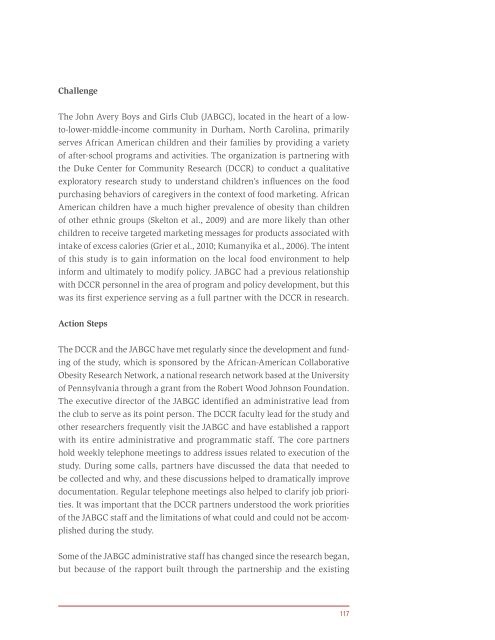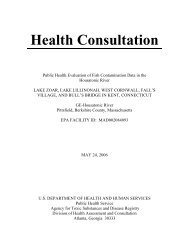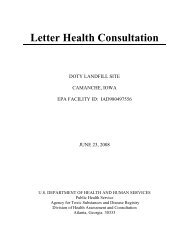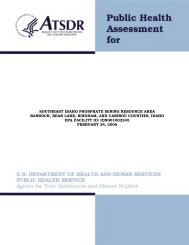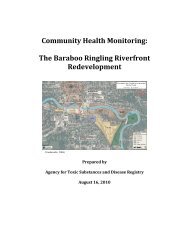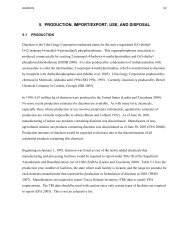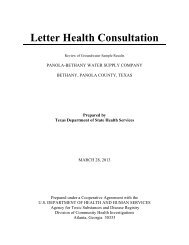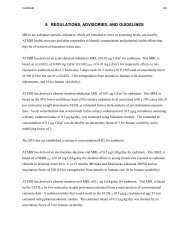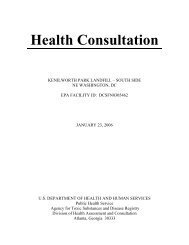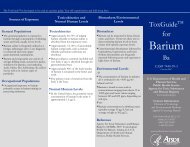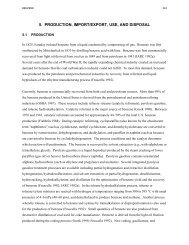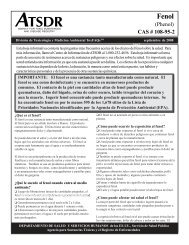Principles of Community Engagement (Second Edition)
Principles of Community Engagement (Second Edition)
Principles of Community Engagement (Second Edition)
You also want an ePaper? Increase the reach of your titles
YUMPU automatically turns print PDFs into web optimized ePapers that Google loves.
Challenge<br />
The John Avery Boys and Girls Club (JABGC), located in the heart <strong>of</strong> a lowto-lower-middle-income<br />
community in Durham, North Carolina, primarily<br />
serves African American children and their families by providing a variety<br />
<strong>of</strong> after-school programs and activities The organization is partnering with<br />
the Duke Center for <strong>Community</strong> Research (DCCR) to conduct a qualitative<br />
exploratory research study to understand children’s influences on the food<br />
purchasing behaviors <strong>of</strong> caregivers in the context <strong>of</strong> food marketing African<br />
American children have a much higher prevalence <strong>of</strong> obesity than children<br />
<strong>of</strong> other ethnic groups (Skelton et al , 2009) and are more likely than other<br />
children to receive targeted marketing messages for products associated with<br />
intake <strong>of</strong> excess calories (Grier et al , 2010; Kumanyika et al , 2006) The intent<br />
<strong>of</strong> this study is to gain information on the local food environment to help<br />
inform and ultimately to modify policy JABGC had a previous relationship<br />
with DCCR personnel in the area <strong>of</strong> program and policy development, but this<br />
was its first experience serving as a full partner with the DCCR in research<br />
Action Steps<br />
The DCCR and the JABGC have met regularly since the development and funding<br />
<strong>of</strong> the study, which is sponsored by the African-American Collaborative<br />
Obesity Research Network, a national research network based at the University<br />
<strong>of</strong> Pennsylvania through a grant from the Robert Wood Johnson Foundation<br />
The executive director <strong>of</strong> the JABGC identified an administrative lead from<br />
the club to serve as its point person The DCCR faculty lead for the study and<br />
other researchers frequently visit the JABGC and have established a rapport<br />
with its entire administrative and programmatic staff The core partners<br />
hold weekly telephone meetings to address issues related to execution <strong>of</strong> the<br />
study During some calls, partners have discussed the data that needed to<br />
be collected and why, and these discussions helped to dramatically improve<br />
documentation Regular telephone meetings also helped to clarify job priorities<br />
It was important that the DCCR partners understood the work priorities<br />
<strong>of</strong> the JABGC staff and the limitations <strong>of</strong> what could and could not be accomplished<br />
during the study<br />
Some <strong>of</strong> the JABGC administrative staff has changed since the research began,<br />
but because <strong>of</strong> the rapport built through the partnership and the existing<br />
117


